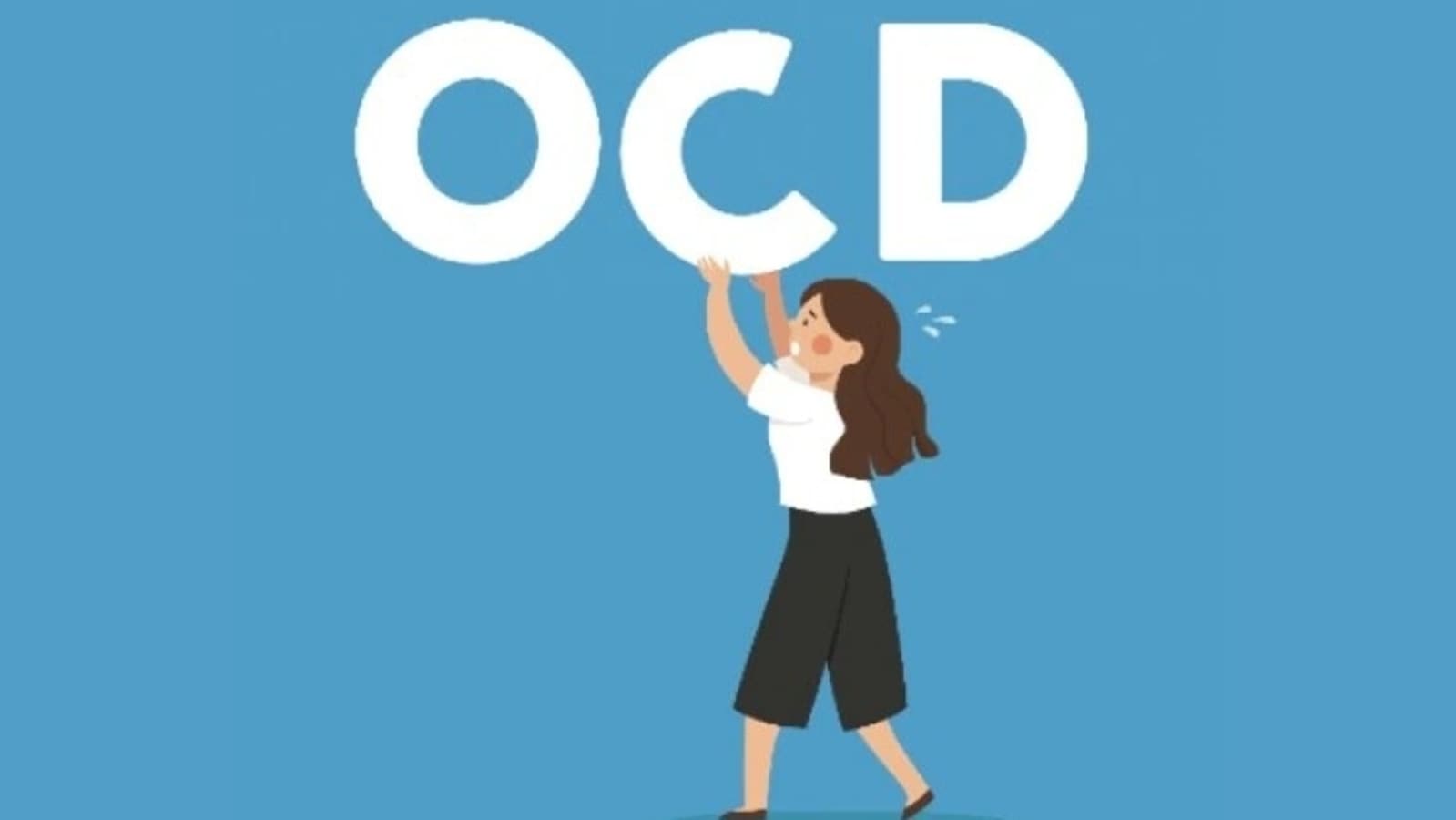Obsessive Compulsive Disorder or OCD is a common disorder that affects around 2 to 3.3 per cent of the world population. People affected by it feel compulsive need to do certain activities and experience a pattern of unwanted thoughts or fears. If one tries to ignore these thoughts, one suffers from intense anxiety or panic which gets relieved only when the action is completed. People with OCD may have fears getting contaminated or an urge to have things in order. They may also have unwanted aggressive thoughts or those related to sexual or religious subjects. OCD patients may be seen cleaning and washing things repeatedly or checking whether the door is locked or not. They may follow a strict routine. OCD is likely to begin in teenage or young age but can also affect a child. The severity of symptoms may vary or change over time. (Also read: World Mental Health Day 2022: Diabetes to arthritis; 5 chronic diseases that can lead to depression)
Many people, however, do not understand this disorder properly and feel that it affects people who are mentally weak or that it can be controlled with will power. Mental health experts say OCD, just like diabetes or blood pressure can run in the family or depend on genetics. It may also be due to physical differences in certain parts of your brain. Depression or anxiety can also trigger OCD.
Dr Ashutosh Shah, DNB (psychiatry), Consultant Psychiatrist, Sir H N Reliance Foundation Hospital Mumbai talks about common myths about OCD in an interaction with us.
Myth: Obsessive-compulsive disorder (OCD) affects only those who are mentally “weak”.
Fact: Experts say it’s far from true and just like people can get diabetes or blood pressure depending on their genes, family history or circumstances, people can get OCD in the same way.
“Latest scientific evidence informs that psychiatric disorders are systemic disorders affecting entire body with main manifestations in the central nervous system (brain). Psychiatric disorders are an outcome of a complex interaction of genetic risk and protective variables together with environmental factors. Psychiatric disorders are no different than any physical disorder like diabetes mellitus (diabetes) or arterial hypertension (high BP) which also have similar gene-environment interactions component in their causation,” says Dr Shah.
“So having any kind of psychiatric disorder including OCD is not anyone’s fault. One did not choose to become unwell. Anyone can get OCD or any other psychiatric disorder. Having a psychiatric disorder like OCD is neither a sign of mental weakness nor does one get OCD because one was ‘weak’,” adds Dr Shah.
Myth: OCD is an uncommon disorder mainly affecting western world people
Fact: Unlike popularly believed, OCD can affect anybody, anywhere and around 2 to 3.3 per cent of the world popular could have OCD at some point considering OCD is the fourth most frequent psychiatric disorder worldwide.
“OCD affects people universally across all cultures, gender and age groups. Almost two thirds of persons have onset of their symptoms before the age of 25 years. Very few get onset of symptoms after the age of 35 years. Some even have onset of symptoms before teenage years. Scientific literature informs that anywhere between 2 to 3.3 percent of the population could have OCD at some point during their life span. OCD is the fourth most frequent psychiatric disorder worldwide. Despite its widespread prevalence, in the western world fewer than half the sufferers have sought treatment from a psychiatrist. In India even lesser numbers of sufferers seek help from psychiatrist,” says Dr Shah.
Myth: One can overcome OCD with ‘will power’
Fact: “Can one overcome diabetes purely by eliminating carbohydrates or high BP by eliminating common salt from food? Answer is obviously no. Medications are the cornerstone for treatment coupled with psychotherapy and a healthy lifestyle. One needs a will to get well both when starting as well as continuing treatment. Support from family and friends goes a long way in helping to fight this chronic and debilitating disorder,” says Dr Shah.
Myth: OCD is neither curable nor treatable
Fact: While a cure evades majority of the non-communicable disorders like diabetes, high BP, as well as OCD, effective treatments are available for all.
“Treatment of OCD starts with confirmation of the diagnosis. For most patients’ treatment is feasible on an outpatient basis. Medications of the antidepressant class are the first line treatment for OCD. Medications require up to 6-12 weeks or longer for alleviating the symptoms and suffering. It is important to be regular with the medication consumption. Medication would require gradual up titration to maximum doses for best results. Psychotherapies like exposure and response prevention and or cognitive behaviour therapy could be a useful adjunct. There are several other second line and third line medicine options available for those whose symptoms do not remit beyond the expected timeframe. Very few patients have treatment resistant OCD and even for them medical treatment options exist,” says Dr Shah.
“Bottom line is earlier the disorder is recognised, evaluated and treated, better are the chances of successful outcomes. As OCD is a chronic disorder, long term treatment is necessary to prevent relapses,” concludes Dr Shah.


